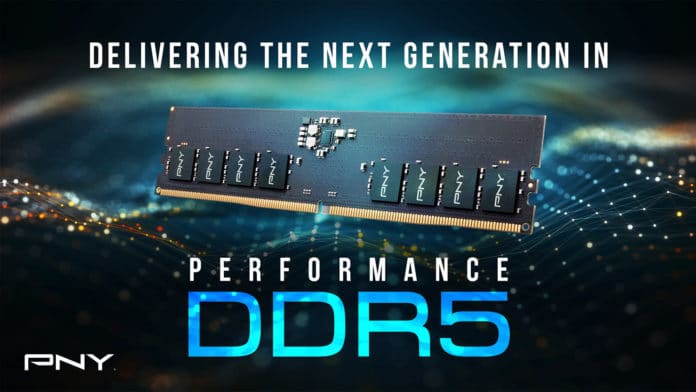A global technology leader PNY has today announced the latest Performance DDR5 4800MHz Desktop Memory for next-generation systems. The DDR5 memory standard, it will allow for higher-density modules and faster frequency speeds.
The memory will operate at ultra-low 1.1 volts. It features on-die ECC support, which increases efficiency. In addition to supporting on-module conversion, this new desktop memory consumes less voltage and less noise generation.
The on-module Power Management IC (PMIC) allows the memory to have higher amounts of headroom for overclocking support and voltage adjustments.
Unlike DDR4, with a limited JEDEC standard speed of 3200 megahertz, DDR5 starts at 4800MHz. The PNY Performance DDR5 4800MHz Desktop Memory will also begin at 16GB per module and feature the JEDEC standard frequency of 4800 megahertz.
Michelle Bolchune, Director of Marketing at PNY, said, “We’re excited to add cutting-edge DDR5 technology to our product portfolio. While we are launching our first DDR5 models in the Performance line, we will also be supporting gamers, content creators, and enthusiasts in their ongoing quest for PC performance by launching models under our XLR8 Gaming brand. These models will feature higher frequency speeds, aggressive out-of-the-box overclocking, stylish heat spreaders, and RGB illumination.”
Jim Handy, Memory Industry Analyst at Objective Analysis, said, “The DRAM industry is on the verge of an important transition from today’s DDR4 to the higher-performance DDR5 interface. Through this announcement, PNY is clearly showing that it wants to be in the lead during this transition.”
This new XLR8 Gaming DDR5 4800MHz Desktop Memory will enter mass production in the fourth quarter of 2021. The company has not declared the price yet.
